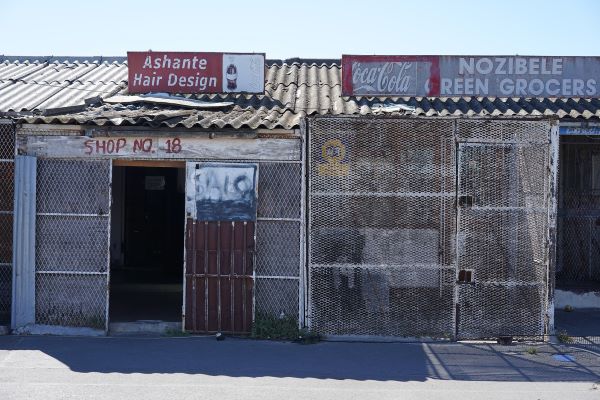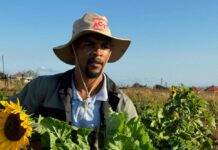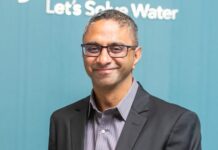A community development organisation is calling for more public-private initiatives to improve basic service delivery that can lift communities out of poverty and restore dignity to the lives of the disenfranchised masses in South Africa (SA). The obligation to restore dignity and ensure equal access to basic services has been one of the country’s greatest challenges since 1994.
Rhiza Holdings, an organisation developing township economies and communities, hails that partnerships with community organisations and public entities are critical to address immediate threats to the stability and security of marginalised people.
“Without public-private partnerships it is impossible to achieve our social development goals for 2030,” says Godfrey Katsande, CFO at Rhiza Holdings. “The role of collaborative and people-focused initiatives are critical to ensuring that people aren’t fighting hunger, thirst, illness and unemployment alone,” he adds.
Improving service delivery is key to solving the challenges that hinder social development in SA. Resources are depleted, jobs and job opportunities are lost, and overall living circumstances deteriorate in communities that lack access to adequate service delivery.
Increased demand for service delivery puts local government under pressure
“We echo the words of Finance minister Enoch Godongwana during the delivery of the Mid-term Budget Speech in acknowledging the immense pressure municipalities are under to meet increasing infrastructure service demands,” says Katsande.
The government has approved 28 of the 67 applications it has received totalling R56.8 billion in debt relief for money they owe to power utility Eskom.
“We welcome Treasury’s stated plan to work with municipalities towards creating more revenue through the transition to more self-generation of electricity by firms and households.”
Should these interventions be successfully carried out, municipalities should be well positioned to improve the quality of basic services, while increasing their access and efficiency. Over the next three years, the government proposes allocating 9.9 percent of available non-interest spending to local government.
Municipalities would have more financial resources available to invest in essential services like water supply, sanitation, road maintenance, waste management, and more. This could lead to improved service delivery, better infrastructure, and a higher quality of life for residents across the county.
Working with the non-profit sector in the communities who lack these services the most will be the catalyst that propels these efforts to their optimum potential to reach the millions of people who live without proper services to break the poverty cycle.
According to the Development Bank of South Africa, service delivery challenges in SA start with inadequate infrastructure. Public-private partnerships have been essential in providing the infrastructure and facilities required for disadvantaged communities to become economically active, benefiting from systems that serve their basic needs. Much of RB’s work has involved tackling these problems in townships that lack the facilities and resources to serve the community’s most vulnerable residents.
Achieving improved employment opportunities for the most vulnerable, discriminated sectors in society and strengthening multi-stakeholder partnerships form part of the United Nations sustainable development goals for 2030.
Focusing on the three pillars of education, healthcare, and agriculture in order to reach and improve the lives of those without access to adequate basic services, Rhiza Babuyile (RB), a division of Rhiza Holdings, reiterates its commitment to assisting the most vulnerable citizens. “Lack of access to basic services including primary healthcare, sanitation, quality education and clean water can lock people in a cycle of poverty by reducing their ability to find and keep a source of income while further destabilising communities with increased health and security risks,” says Katsande.
By supporting and starting initiatives to improve the quality and accessibility of education, particularly in townships and rural regions, we contribute to resolving some of these challenges faster. “Through our healthcare pillar, we have played a role over the last decade in improving healthcare accessibility in townships and rural regions with the help of our mobile and traditional clinics,” Katsande adds.
Public-private partnerships are proven to work
Rhiza Babuyile commends its public and private partners and donors for helping it to reach thousands of children, women and disadvantaged young people. “Our goal is to provide primary healthcare to one million people in townships and rural areas. In the education pillar, we seek to expand our access to blended financing tools through collaborations with the five blended financing initiatives we are now running to support early childhood development centres in townships,” Katsande says.
“For our educational efforts, we are still working to stream in more blended funding mechanisms. Additionally, all of our mobile and brick-and-mortar clinics located in townships around the nation, offer healthcare skills training. Training in diverse agricultural and green economy skill sets is offered through our green economy programs.” says Katsande.
Partnering with commercial businesses has allowed Rhiza Babuyile to launch blended finance instruments that have aided in unlocking value to fund activities that support efforts to achieve its social development goals. Visit www.r-b.org.za to find out more.








